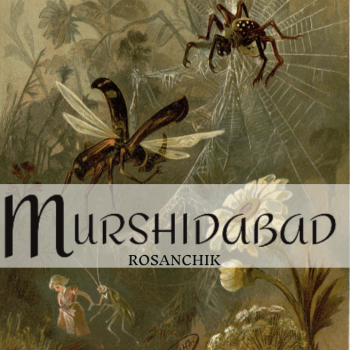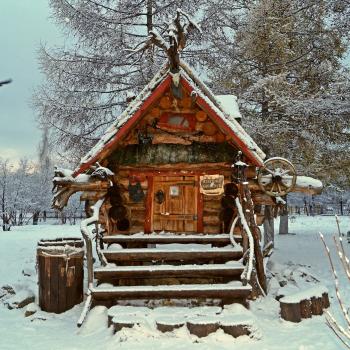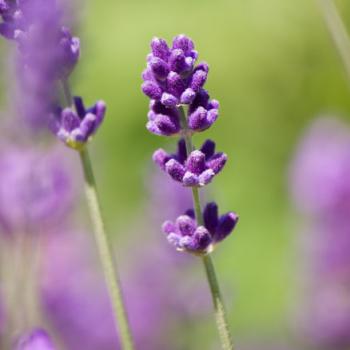This was told to me by a forest expert from a U.S. environmental regulatory agency. His experience is one of many I have heard in which an individual comes face to face with an intense, captivating, unforgettable beauty, a beauty which can, at a distance of years, remain remarkably fresh and serve as an entryway into deeper regions of the soul. In stories about awe, what matters most are the size and the power of the scene and, by extension, its Architect. In stories about beauty, what matters most is the artistry of the scene, not its size. The focus here is on skill, not might -- a different face of God.
These first two types of experience are relatively easy for people to share with one another. The same cannot be said of the third kind of story.
Sitting on our small deck, knitting and resting old legs, I am entertained by my spiritual sister, an equally old pine tree. She is very tall, probably 40 feet or so, and is at least as old as I am. She leans a bit; so do I. In her care are many birds that I watch with pleasure. They love and fight and nest in the tree. At Christmas time, pairs of cardinals decorate her limbs.
She is still green, covering lots of old brown branches, like my gray hair covering the black. We both soak in the sun and the air and are trying our best to live lightly in our worlds. One day in the not-too-distant future she will fall and fertilize the earth, as I will do. It's a consoling thought. We have children and grandchildren that give us the continuation of life. A bit of the divine in the tree and me. Yes, that's close to what I believe.
When my mother died, I was pregnant and needed her. I went to the church to be quiet and cry. The church was locked and the priest was standing outside. He knew me but did not unlock the church. I don't know why, but it was a nail in the coffin of my traditional beliefs. We had nine family-related deaths in one year. I learned to watch the red setting sun and was calmed, soothed and grateful, at least for a moment. I began to like digging in the dirt instead of cursing each weed. I started to spend Sunday morning in the woods. Was I losing long-held beliefs or simply changing them?
There is a bit of the divine in the trees and the creatures who reside there.... I believe my tree and all other living things believe and feel in their particular living ways. I want to work on being as good a human as I am able, just as my tree does her job with grace and elegant treeness. (Living Life with Elegant Treeness," by Ruth Kamps, on National Public Radio,Morning Edition, August 15, 2005)
This story exemplifies the third kind of experience, which I call "expanded communion." These stories are more complex than the first two kinds. In the first two genres, the natural world remains as an object. They respect nature as a source of inspiration and admiration, while keeping nature as an object, an "it." And while these two stories may approach the boundary of claiming that nature has a spiritual dimension, they don't explicitly cross it. By respecting that boundary, or by not discussing it, they remain relatively safe.
That can't be said of this third kind of story. It declares, very clearly, that a tree is a being in a manner far more "human" than we normally recognize. Or more. Ms. Kamps asserts that there is "a bit of the divine in the tree and in me." This is the heart of the matter. Today, only in two arenas -- pets and gardens -- does our culture allow us to speak about some other subjective presence existing in the world in addition to human beings. Outside of those two areas, people who speak about trees or animals with personalities, or who see God inside them (not just through them), are called "tree huggers." Their perspective is put down.
I don't believe that our society will achieve ecological sustainability if we have not known the joy of nature's beauty, been silent in the face of her wonder, felt grateful when we've been reconnected to the wider community of creation. We need to rebuild our basic bonds with the earth, so that we can hear the call to sustain that which sustains us.
Consumption, Religion, and the Earth
Gary Gardner is director of research at the Worldwatch Institute, a leading environmental and development think-tank in Washington, D.C., publisher of the annual State of the World report on the condition of the global environment. Gary told me this story in 2004.
Recently, I had a good friend visit me from out of town. He eats cereal for breakfast in the morning, which I do not, so before he arrived I went out to the grocery store to buy him a box of cereal.




